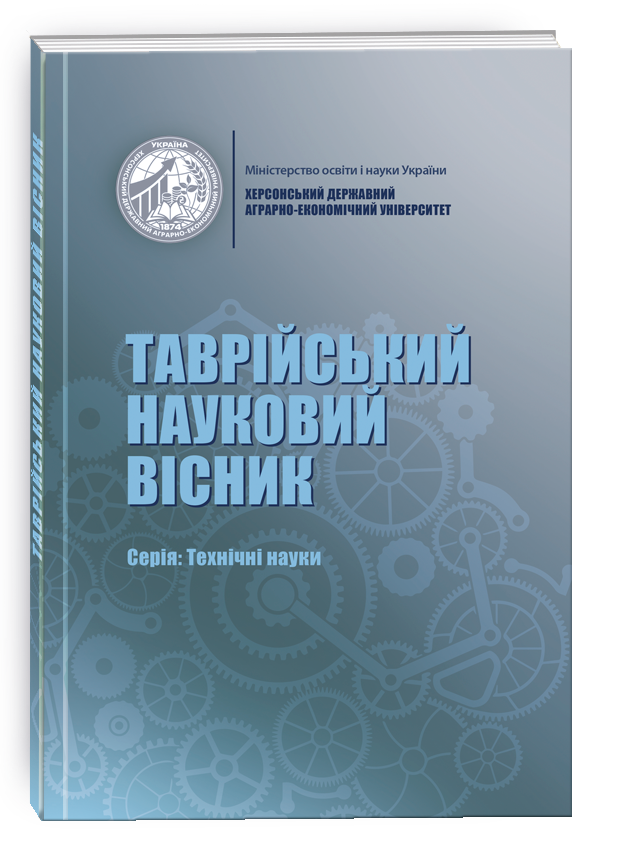THE INFLUENCE OF COFFEE MARINADE ON THE OPTIMIZATION OF QUALITY INDICATORS OF SEMI-FINISHED GAME MEAT
DOI:
https://doi.org/10.32782/tnv-tech.2023.5.15Keywords:
coffee, marinating, semi-finished products, wild boar meat, experimental samples.Abstract
Marinating is an important way of preparing meat semi-finished products, which is used to improve the taste and textural properties of the product. The use of coffee as the main component of the marinade is a new and relevant solution. Coffee is a valuable drink due to the content of caffeine and chlorogenic acids, which have an antioxidant effect. The spectrum of biological action of antioxidants is very diverse and is determined by their protective functions, expressed in the ability to actively interact with free radicals and oxygen in the air, thereby preventing the oxidation of fats and spoilage of the product. Currently, semi-finished products occupy the first place in the overall structure of production and consumption of meat products in most countries of the world. A wide range of products allows rational use of raw materials and satisfying the demand of consumers of various categories. The production of piece semifinished products from more expensive raw materials forces manufacturers to strive for maximum increase in shelf life and stability of product quality indicators. Marinating meat is a relevant way to solve this problem, as it helps to preserve the product from premature spoilage and improve its organoleptic characteristics. The introduction of the meat of wild animals into the technology of manufacturing semi-finished products consists in the search for new sources of nutrition and the development of a sustainable industrial sector. This trend arises in connection with a sharp increase in the demand for meat products, as well as constant changes in the eating habits of the population. The use of wild boar meat in semi-finished product technologies can be beneficial from an economic and ecological point of view, but requires proper control and regulation of product quality and safety. In marinating wild animal meat, coffee can be used as a multifunctional component – to neutralize the specific smell of game, giving the product piquancy and a unique taste, caramel color and delicate texture. Therefore, it was decided to develop a coffee-based marinade for semi-finished products from wild boar meat. The developed game semi-finished products were marinated in two ways: marinating in coffee marinade and injection. The yield of semi-finished products depending on the time and method of pickling, acidity indicators, protein content and organoleptic characteristics of the developed samples were studied.
References
Qian-Da X., Zhi-Long Yu., Qiang H., Wei-Cai Z. Migration of phenolic compounds in meat during marinating process: Action rule, mass transfer and mechanism. LWT. 2023. V. 185. Р. 115192.
Domínguez R., Pateiro M., Gagaoua M., Barba F.J., Zhang W., Lorenzo J.M. A comprehensive review on lipid oxidation in meat and meat products. Antioxidants (Basel). 2019. №8(10). Р. 429.
Lobo V., Patil A., Phatak A., Chandra N. Free radicals, antioxidants and functional foods: Impact on human health. Pharmacogn Rev. 2010. № 4(8). Р. 118–126.
Слащева А.В. Етнічні кухні : навч. посіб. Кривий Ріг : ДонНУЕТ, 2020. 159 с.
Latoch A., Czarniecka-Skubina E., Moczkowska-Wyrwisz M. Marinades Based on Natural Ingredients as a Way to Improve the Quality and Shelf Life of Meat: A Review. Foods. 2023. № 12(19). Р. 36–38.
Jiyoung K., Ki Won L. Coffee and its Active Compounds are Neuroprotective. Coffee in Health and Disease Prevention. 2015. 46. P. 423–427.
Rojas-González A., Figueroa-Hernández C.Y., González-Rios O., Suárez-Quiroz M.L., González-Amaro R.M., Hernández-Estrada Z.J., Rayas-Duarte P. Coffee Chlorogenic Acids Incorporation for Bioactivity Enhancement of Foods: A Review. Molecules. 2022. 27(11). P. 3400.
Zhixun S., Meiqi L., Wei Z., Shengbao C., Xiaosong H., Junjie Y. Analysis of phenolic compounds in pickled chayote and their effects on antioxidant activities and cell protection. Food Research International Volume. 2022. № 157. Р. 111325.
Davis A.P., Chadburn H., Moat J., O’Sullivan R., Hargreaves S., Lughadha E. High extinction risk for wild coffee species and implications for coffee sector sustainability. Sci Adv. 2019. № 5(1). Р. 3473.
International Coffee Organization (ICO) : веб-сайт. URL: https://www.ico.org/mission07_e.asp?section=About_Us (дата звернення: 08.11.2023).
Samoggia A., Riedel B. Consumers’ Perceptions of Coffee Health Benefits and Motives for Coffee Consumption and Purchasing. Nutrients. 2019. № 11(3). Р. 653.
Alsanad M.A., Sassine Y.N., Sebaaly Z.E., Fayssal S.A. Spent coffee grounds influence on Pleurotus ostreatus production, composition, fatty acid profile, and lignocellulose biodegradation capacity. Journal of Food. 2021. № 19(1). Р. 11–20.
Surma S., Oparil S. Coffee and Arterial Hypertension. Current Hypertension Reports. 2021. № 23. Р. 38.
Пешук Л.В., Іщенко В.М., Штик І.І., Іванова Т.М. Використання маринадів на основі харчових кислот для приготування напівфабрикатів з м’яса дикого кабана. Науковий вісник ЛНУВМБТ ім. Ґжицького. 2014. Т. 16, Ч. 14. № 2 (59). С. 164–169.
Liao Y.C., Chang C.C., Nagarajan D., Chen C.Y., Chang J.S. Algae-derived hydrocolloids in foods: applications and health-related issues. Bioengineered. 2021. № 12(1). Р. 3787–3801.






